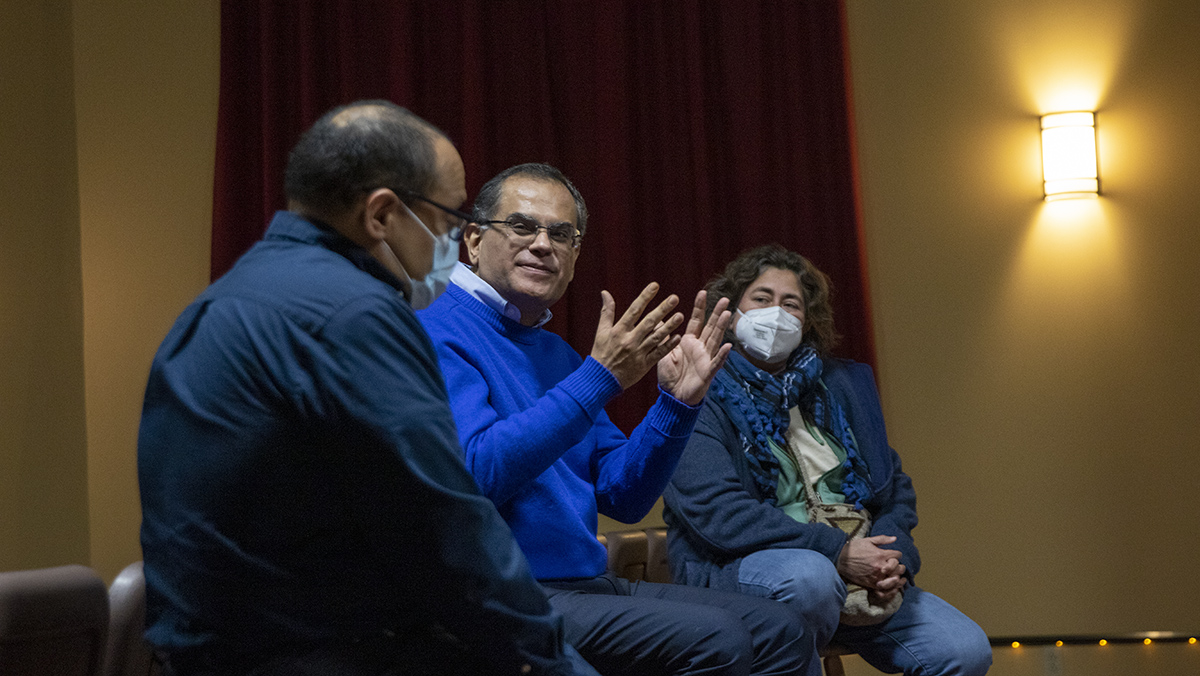On March 27, the Finger Lakes Environmental Film Festival and the Park Center for Independent Media hosted a screening and talkback of the documentary “The Unmaking of a College” at Ithaca’s local independent movie theater, Cinemapolis.
The documentary, directed by Amy Goldstein, explores the 2019 student sit-in at Hampshire College — a private, liberal arts college in Massachusetts — which lasted 75 days. The protest occurred in response to President Miriam Nelson’s attempts to give up the independence of the institution, considered one of the most experimental colleges in the United States. President Nelson planned to implement changes that would involve partnering with another college, not admitting a full 2019 freshman class, and cutting faculty and staff.
Goldstein, an alum of the college, constructed a documentation of the events through student-shot footage and interviews with alumni, staff, and students. The president eventually resigned from the college and the college remained independent.
The screening of the film was followed by a talkback with Salmaan Hameed, an associate professor of integrated science and humanities at Hampshire College. The talkback was moderated by Park Center for Independent Media Director Raza Rumi.
Hameed reflected on the events at Hampshire College, stating that he had no idea the announcement was happening and that even the academic deans did not know Nelson was going to enact this change within the college.
“Being in there was like the middle of a storm,” Hameed said. “The way the announcement was made, it was to maximize the shock. It came out of nowhere. … So I can pretty much safely say that this was one of the most stressful times in my life.”
Ithaca College Professors Patricia Rodriguez and Carlos Figueroa also joined for the discussion. They related what they witnessed in the documentary to recent conflicts between students and the administration at Ithaca College.
Rodriguez, associate professor and chair of the Department of Politics at Ithaca College, said the documentary exposed that many higher education institutions are not as transparent as they claim.
“I think that it speaks so much to the uncertainty that we’re all facing in higher ed in general, but also, in terms of small liberal arts colleges and for us [Ithaca College], it’s kind of personal, right?” Rodriguez said. “I think one of the things that we realize is how much secrecy there is behind the decision–making processes. … So that’s part of the really big frustration, as well as … the fact that as faculty members and as staff members, we really don’t have much decision–making participation at all.”
Carlos Figueroa, associate professor and legal studies coordinator in the Department of Politics at Ithaca College, commented on the difficulty of getting a college that has such stark divisions in its sub-schools, such as Ithaca College (The college is made up of five schools: the School of Business, Roy H. Park School of Communications, School of Health Sciences and Human Performance, School of Humanities and Sciences, and School of Music) to organize as a whole on one issue.
“People get divided based on their own group … as opposed to ‘Let’s focus on it’ [one common issue],” Figueroa said. “One issue that we can focus on is shared governance across the board, which is what brought people together [in the Hampshire College movement], and that is a starting point that is missing here at IC.”
Photo Credit: NOLAN SAUNDERS/THE ITHACAN

